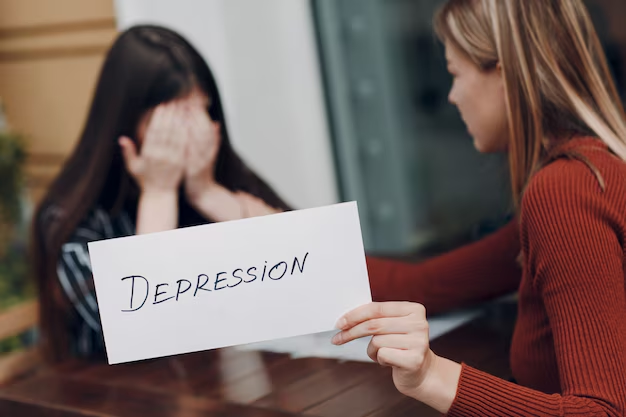Do I Have PTSD? Take This Quiz to Find Out
Imagine a world where the past intrudes into the present, where the echoes of what you’ve experienced shape your every thought, decision, and emotion. For many, this is not just imagination—it's a reality shaped by Post-Traumatic Stress Disorder (PTSD). If you've been questioning whether your experiences or feelings might align with PTSD, understanding this condition can be the first step toward clarity. Here's a comprehensive guide to give you insight into PTSD and how a self-assessment quiz might help you along the way.
Understanding PTSD: A Closer Look
Post-Traumatic Stress Disorder is a mental health condition triggered by experiencing or witnessing a traumatic event. This could be anything from combat exposure, a natural disaster, a serious accident, or a personal assault. Not everyone who experiences trauma will develop PTSD, which is part of what makes understanding and diagnosing it such a personal journey.
Common Symptoms of PTSD
PTSD manifests in various ways, and its symptoms are categorized broadly into four types:
- Intrusive Memories: These include flashbacks, nightmares, and severe anxiety related to the traumatic event.
- Avoidance: Steering clear of places, people, or activities that might remind you of the trauma.
- Negative Changes in Thinking and Mood: This might mean feeling hopeless, experiencing memory problems, or having difficulty maintaining close relationships.
- Altered Reactions: Symptoms here might include being easily startled, always being on guard, or engaging in self-destructive behavior.
It's important to recognize that experiencing one or more of these symptoms doesn't automatically mean you have PTSD. However, a string of persistent symptoms affecting your daily life could merit a closer look.
Exploring the “Do I Have PTSD” Quiz
Quizzes or self-assessment tools can be a starting point for understanding PTSD, but it's crucial to view the results appropriately.
How Online Quizzes Work
PTSD quizzes generally involve a series of questions designed to highlight symptoms aligned with the disorder. They often inquire about your emotional reactions, experiences of trauma, current thoughts, and behaviors.
Important Considerations:
- These quizzes are not diagnostic tools. They are primarily educational and should prompt further reflection and discussion with a professional.
- Results provide a snapshot of your current situation, not a definitive label of your mental health.
What to Expect From a Quiz
A well-structured PTSD quiz will question:
- Frequency of intrusive thoughts or memories.
- Level of avoidance in daily activities.
- Impact of trauma on emotional health.
- Changes in behavior following traumatic incidence.
These quizzes typically provide a result indicating whether your experiences could align with PTSD, highlighting if it might be beneficial to seek professional guidance.
Beyond the Quiz: Next Steps
If a quiz suggests you might have PTSD, consider it a nudge rather than a conclusion. Here are practical steps to take:
- Seek Professional Evaluation: A mental health provider can offer a comprehensive evaluation and discuss symptoms in detail.
- Educate Yourself: Understanding the nuances of PTSD helps demystify the condition. This involves reading authoritative content, attending workshops, or participating in support groups.
- Reach Out for Support: Connecting with friends or family can provide invaluable support. Alternatively, support groups specifically for PTSD can foster a sense of community.
- Mindful Practices: Activities such as meditation, yoga, and other stress-reducing techniques can complement traditional therapies.
Misconceptions About PTSD
It's easy to misunderstand PTSD, leading to misconceptions that can hinder recognition or treatment.
Common Misunderstandings
- PTSD Only Affects Veterans: While PTSD is common in veterans due to combat experiences, it can affect anyone who survives trauma.
- People With PTSD Are Unstable: Although PTSD can affect emotional responses, individuals often work hard to manage symptoms and lead fulfilling lives.
- It Will Get Better on Its Own: Without appropriate intervention, PTSD symptoms may persist or worsen over time.
Dispelling these myths is vital. Understanding PTSD as a disorder that spans demographics and requires individualized attention helps create a supportive environment for those affected.
Self-Care and Management
While professional intervention is key, personal strategies can be valuable in managing symptoms.
Tips for Self-Care
- Routine Activities: Consistency in daily activities promotes mental health by providing structure.
- Physical Activity: Exercise releases endorphins, helping reduce stress.
- Healthy Diet: Nutrition can impact mood and energy levels, influencing mental health.
- Adequate Sleep: A regular sleep pattern enhances emotional resilience and rest.
These foundational self-care activities complement therapeutic interventions and can alleviate some symptoms of PTSD.
Deciding on the Best Path Forward
If you're reflecting on whether to take the "Do I Have PTSD" quiz or have already done so, the key is an informed journey toward understanding. Whether that involves seeking therapy, using online tools, or implementing self-care strategies, the objective is a path to wellness and clarity.
Inviting empathetic support from mental health professionals, friends, or community groups can aid in uncovering the best approaches to manage and understand your unique experiences.
Empowering Takeaway
Remember, PTSD is a complex, deeply personal condition. Your journey with mental health is significant, deserving patience, understanding, and empathy from yourself and others. Seeking clarity and understanding are powerful steps toward overcoming challenges, and they pave the way to mental wellness.
Quick Summary of Key Takeaways:
- Recognize Symptoms: Intrusive thoughts, avoidance, emotional changes, and altered reactions.
- Quiz with Care: Use quizzes as a guide, not a diagnostic tool. 📝
- Seek Professional Help: Consult mental health professionals for comprehensive care. 👥
- Dispel Myths: Educate yourself to break down misconceptions about PTSD. 📚
- Self-Care Strategies: Routine, exercise, diet, and sleep as self-help tactics. 💪
- Community and Support: Engage with support networks for shared experiences and advice. 🤝
Whether you suspect PTSD or are supporting someone who might have it, these insights and steps provide a foundation for pursuing a balanced, informed approach to mental health. 🌟

